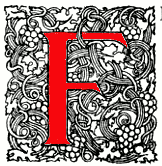
rom the religious point of view, the London Jews—and, indeed, the whole Jewish population of the country—are an exceedingly interesting community. They are the only section of the Hebrew people which has successfully illustrated the capacity of Orthodox rabbinical Judaism for progressive development under the influence of Western ideas. In no other country has the Jew so completely adapted himself to his surroundings with less injury to the traditional customs of his people. The synagogue service has been rendered impressive without recourse to what are called Chukath Hagoyim (usages of the Gentiles), while the reverence for antiquity, which is so distinguishing a feature in English life, has taught the Jews that their racial customs and historic memorials have a value above the tests of a narrow patriotism. Under the influence of the characteristic English spirit of tolerant compromise, Judaism flourishes in this country in its integrity; whereas in countries like France and the United States destructive reforms have been forced by the prevailing iconoclasm, and in Russia and Germany a levelling despotism has made more or less of a conformity with the national customs the condition of individual progress.


Left: Day of Atonement — Concluding Service. Right: Removing Scrolls of the Law from the Ark. [Click on images to enlarge them.]
Orthodox Judaism as practised in England is in substance the religion of the Old Testament, interpreted and organised by the Talmudic doctors. In the synagogues, which in certain architectural features have to conform to Hebrew models of great antiquity, the Pentateuch is still read from a written scroll, which is sumptuously ornamented, and kept in the Ark. The taking of the scroll from its holy resting place and the unrolling and reading of it form the principal feature in Jewish public worship, and it is the object of an elaborate ceremonial. Another solemn function in the Synagogue service, which is illustrated in one of the accompanying engravings, is the blessing of the congregation by the Cohanim, or hereditary priests. Every descendant of Aaron, whether a layman or a clergyman, is qualified for this function, which is performed from the steps of the Ark. The ceremony is ordered in Numbers vi. 22–27. The Cohanim—many of whom preserve the name of Cohen as a secular appellation—recite the verses here prescribed with their faces enveloped by the Talihth—a kind of praying shawl, made of silk or wool, with fringes of symbolical import, the use of which is based on Numbers xv. 38, 39. This covering of the face with the Talihth, which is merely a means of shutting out the contemplation of worldly things, is usual with orthodox Jews on occasions of special solemnity. During the latter part of the concluding service of the eat Fast of Atonement the whole congregation generally cover their heads in this fashion, while they dwell with pious intensity on the doctrine of the Divine Unity. [603]
Last modified 19 July 2021